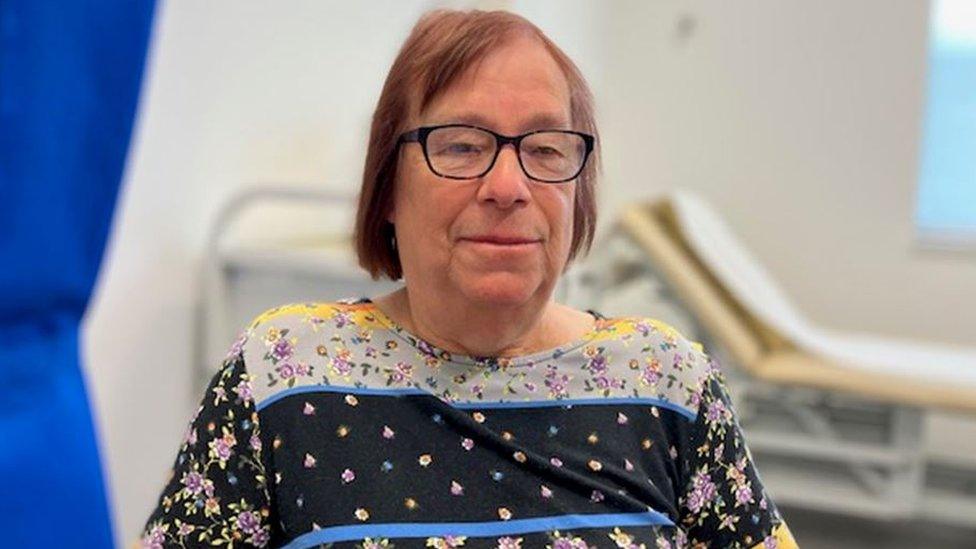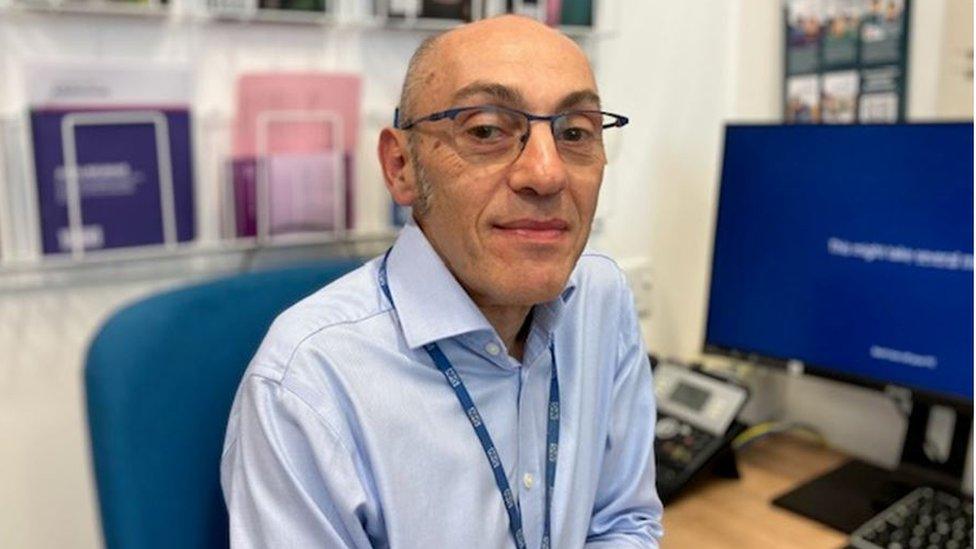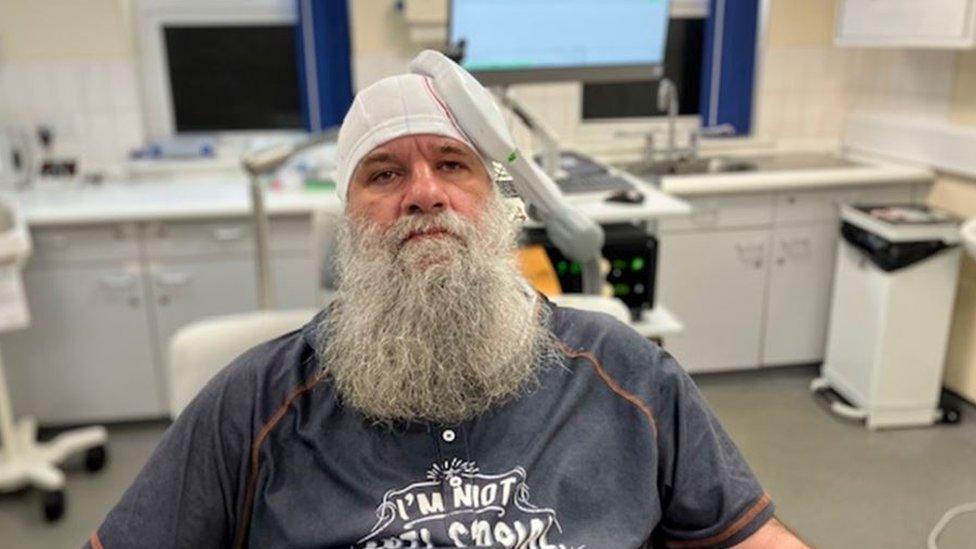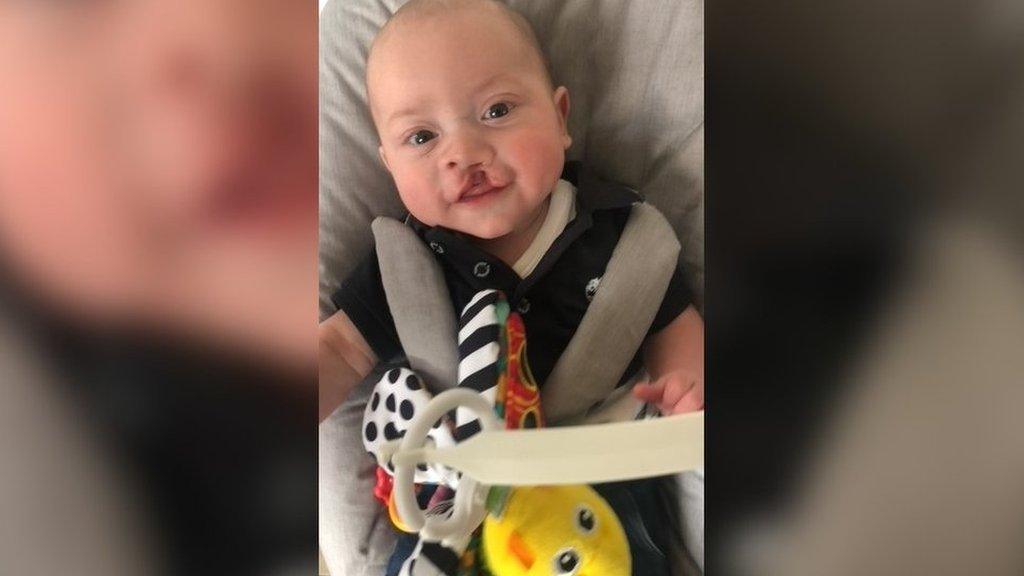Bristol study finds heart attack risk in osteoporosis drug
- Published

Nesta Babbage has been prescribed the new drug and said it could improve her life
New research has confirmed women who take a new anti-osteoporosis drug could increase their risk of a heart attack.
Osteoporosis causes a loss of bone tissue in some women aged 50 and above.
Prescription medicine Evenity can make bones stronger but Bristol Medical School says the drug may increase the risk of heart attacks by 30%., external
UCB, the pharmaceutical firm which produces the drug, said safety is at the centre of its work and is examining the findings.
Osteoporosis, where bones become weaker and more likely to break, affects 3.5 million people in the UK - including one in five women aged 50 and over and one in 20 men.
Evenity, also known as Romosozumab, can only be prescribed in hospital and around 125 Southmead Hospital patients are prescribed it each year.
The drug can be self-injected with a type of EpiPen, and helps with the formation of new bone tissue.
Romosozumab attaches itself to a natural substance in the body called sclerostin, which regulates the formation and breakdown of bone.
It is the first new osteoporosis treatment in a decade.
'Potentially transform lives'
Nesta Babbage from Pill in Bristol has been prescribed the new drug and has to self-inject it.
Like many with severe osteoporosis, she did not know she had the condition until she fractured her spine earlier this year
The 73-year-old said she "all of a sudden" felt and heard a click in her back which caused her "pain for ages" and was then sent for a scan.
She feels Evenity has the potential to transform her quality of life.
Health officials advise to screen patients like Mrs Babbage with a bone density scan, to identify if they are at risk and take steps to decrease the effects of osteoporosis.

Professor Tobias said: "We wanted to predict whether blocking sclerostin [by using Evenity] might lead to an increased risk of heart attack"
A study in the New England Journal of Medicine, external showed Evenity was twice as effective at reducing the risk of spinal fractures in women compared with older medication prescribed in tablet-form by GPs.
But other studies were less conclusive. This is what inspired Bristol Medical School to get definite evidence, by examining those female patients with a genetic tendency to have lower levels of sclerostin.
Professor of rheumatology at Bristol Medical School, Jon Tobias explained the increased risk depends on a patients predisposition., external
"If you are genetically predisposed to having lower levels of sclerostin, that seems to increase your risk of having calcification in the arteries and also having the risk of heart attack," he said.
'Balancing things out'
He added difficult decisions need to be made by patients when they consider the pros and cons of using the drug.
"There are some people who, particularly when you get to over 80, you are going to be at higher risk of heart attack automatically.
"But if you are really at high risk of vertebral fractures, and this drug is going to save you from a vertebral fracture, it's a matter of balancing these things out," he added.
UCB said more than 400,000 patients have been treated with Evenity worldwide, and based on a post-marketing safety data review, the benefit and risk profile of the drug is favourable in its approved indications.

Follow BBC West on Facebook, external, Twitter, external and Instagram, external. Send your story ideas to: bristol@bbc.co.uk , external
- Published18 May 2023

- Published27 April 2023
